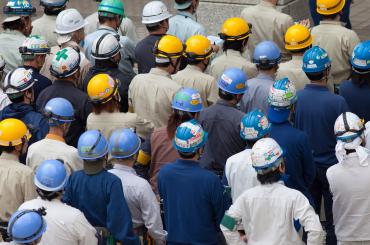
China
-

How robots have improved worker safety in China
The rise of industrial robots in China has significantly improved worker safety, leading to fewer workplace accidents, injuries, and fatalities.
-

Fostering connections between firms improves business performance
Evidence from China finds that firms underestimate the value of new partnerships and therefore under-search for partners. As a result, referrals to new suppliers and clients can greatly improve firm performance.
-

How social media fuels the spread of protests and strikes across China
Despite strict censorship, social media in China plays an important role in the spread of protests and strikes. Information spreads quickly between distant cities on Weibo, which increases the scope of collective action.
-

Managing flood risk: Lessons from China’s Flood Detention Basin policy
Should we intentionally expose certain areas to higher risks to protect broader regions from disasters? Evidence from China suggests that although areas specifically designated to bear higher flood risk experience economic losses, the overall economi...
-

Boosting consumption in China: The effectiveness of minimum wages
Minimum wage increases in China are spent rather than saved, and are not associated with increased unemployment. In households with children, a significant portion of the additional income is allocated to healthcare and education.
-

Algorithms amplify gender gaps in China’s gig economy
Stark gender disparities are evident on a Chinese online healthcare platform, with algorithms disproportionately favouring male physicians.
-

How do new firms shape regional economic growth in China?
Barriers to entry facing new firms are a major source of regional economic differences. Removing these barriers can play an important role in economic convergence and growth.
-

Implementing industrial policy effectively: Lessons from shipbuilding in China
Industrial policy in China aimed to make the country’s shipbuilding industry a world leader. Comprehensive data on shipyards worldwide reveals the huge scale of this policy, which boosted China's domestic investment, entry, and world market share dra...
-

Learn, Move, Practice: Political rotation spread knowledge and industrial policy across China
The rotation of local political leaders across cities in China facilitates the interregional diffusion of industry-specific knowledge and influences the realisation of local comparative advantage on international markets, potentially through the prac...